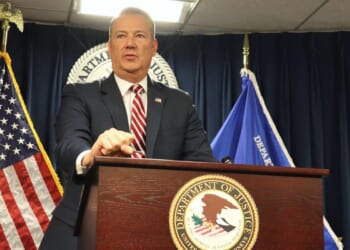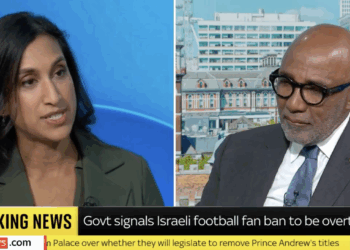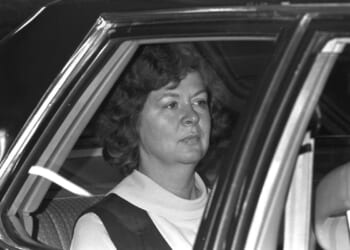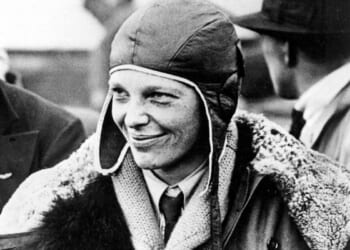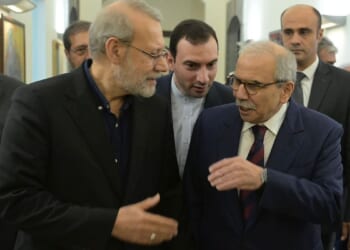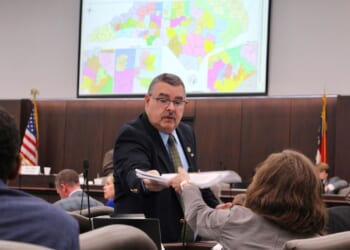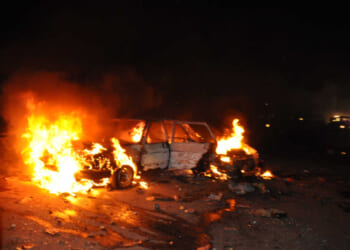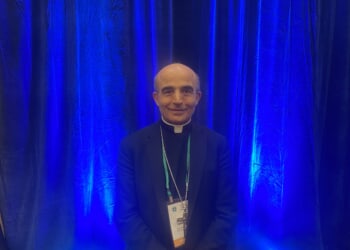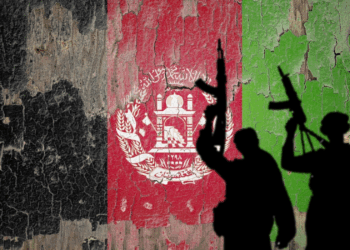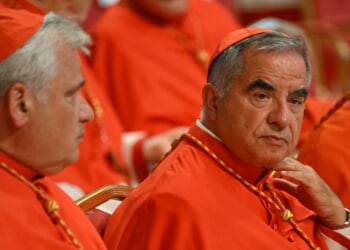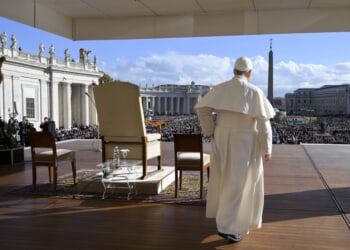Jay Singh-Sohal is a strategic communications director at M&C Saatchi World Services, an Army veteran and former West Midlands PCC candidate. He has led community remembrance events for more than a decade, for which he recently received an OBE for Services to Commonwealth Commemoration.
Every November, Britain finds a moment to pause and reflect. The bugle sounds, crowds fall silent, and we collectively bow our heads to remember those who served, fought and died during the Great War for the freedoms we cherish today.
Remembrance, though, is more than an act of thinking about the past. It is an active part of renewing our national identity, one which connects the increasingly diverse fabric of our nation to a shared experience, a shared heritage through which we find a common cause and values we all identify with.
Today, more than ever, it is important to strive to make common ground and the story of those from differing socio-economic backgrounds in Britain as well as those who served from across the Commonwealth helps us to find that essential quality which we seem to be missing, national unity.
Ipsos polling in July 2025 found that 81 per cent of British adults say that British society is “very/fairly divided”. 61 per cent identified “between immigrants and people born in Britain” as the area of greatest tension. While just over half of those polled (55 per cent) said that differences in people’s political views are so divisive that they are “dangerous” for society.
The numbers highlight what is plain to see; on our televisions, on social media and on the doorstep, debates rage between polar opposites about immigration, law enforcement monoethnic neighbourhoods, etc. It’s becoming ever-more toxic and easily weaponised, be it by activists, attention seekers or malign state actors.
So at such a vulnerable time, we should ask how we might find common ground and shared ideals that unite disparate communities and create the means for increasing societal resilience against those forces that seek to divide.
Remembrance offers that unique opportunity. It’s through a better understanding of that shared history, be it of the Indians, Africans, Caribbeans or other Commonwealth troops who fought and died for our country, that we can build resilience to the us and them debates that prove divisive. Awareness of this diverse contribution of those people who make up Britain today strengthens our social fabric against political extremes that would divide us in the present, through exploiting ignorance or simply shouting mistruths.
Their numbers alone help show the magnitude of their service and sacrifice. During the Great War: from undivided India, around 1.3 million soldiers and labourers (non-combatants) served, with around 74,000 killed. From the African continent, including Nigeria, Kenya, Uganda and Ghana, it was around 1 million soldiers and carriers (non-combatants), with around 100,000 killed (mainly from disease). From South Africa, 136,000 soldiers served and 7,000 were killed. From the Caribbean, around 15,000 served and just over a thousand died. And from the dominions of Canada, Australia and New Zealand collectively, around 1.2 million men served, with around 150,000 killed in action.
This contribution continued during the Second World War in similar fashion: from undivided India it was 2.5m men with around 87,000 killed. From Africa, 1 million men served with around 30,000 killed. From South Africa 340,000 men with 11,000 killed. From the Caribbean, 16,000 served and around a thousand died. And from the dominions of Canada, Australia and New Zealand collectively, 2.3 million and 95,000 killed in action.
Each number is a real person, a story and a genesis for a family and community that have settled in Britain. Remembering them well builds cohesion, connecting people across backgrounds, faiths and generations through a shared sense of belonging in the country we live in today.
In my experience in both leading Sikh commemoration events and as a trustee of the Commonwealth War Graves Foundation; when young people in Birmingham or Bradford learn that their great-grandfathers fought for Britain in the same uniform as those from Bath or Basildon, something changes. Pride replaces alienation and there is renewed confidence in their belonging. At the same time, sharing this with their ethnic opposites creates understanding and respect. Divisions begin to be bridged.
Recent polling suggests there is a need for such an approach. A British Future study to mark VJ80 found that 86 per cent of the public agree we should “commemorate all those who fought for Britain in the world wars, regardless of where they came from”, with only three per cent disagreeing.
Even more striking, 77 per cent agree that remembering our shared wartime history “can help build cohesion in today’s multi-ethnic society,” whilst 81 per cent believe teaching children about the diversity of Britain’s wartime allies “helps them understand the multi-ethnic society we share today.”
Nonetheless, there is a challenge in ensuring wider participation. Whilst the same research showed that 55 per cent of Britons knew about the service of Indian soldiers, only 24 per cent knew of the contribution from Kenya or Jamaica; and barely a third were aware of the Muslim contribution.
That lack of awareness reveals a dangerous gap; one easily filled by those on the fringes whose agendas thrive on ignorance. The far right uses it to claim Britain’s war success was built in isolation whilst the far left paint Britain’s history in shades of imperial guilt. Both drown out those sensible voices in the middle simply sharing the facts or heroism of those who served.
Raising awareness of the Commonwealth contribution at large gives us a way to reject both extremes. It allows us to celebrate a Britain whose strength has always come from partnership and purpose with those from differing backgrounds but shared ideals. When people see themselves in our national story, they invest in our nation’s future.
This isn’t about righting historical oversight, but about the kind of country we want to be. If people don’t know that the Commonwealth stood with Britain when it mattered most, then the sense of belonging that should come from that shared history is lost. That’s not just an historical injustice, but a missed opportunity for improving social cohesion.
Remembrance, at its best, reminds us that Britishness is a shared inheritance, not defined by ancestry but by allegiance to the values we hold dear and fight to defend. As the British Future research makes clear, the public understands this instinctively, they just need the knowledge to see it. And it’s that awareness that strengthens the country against the polarising forces of our age. Division is sowed only when people are persuaded that they don’t belong in Britain’s story. Thus, raising awareness of the Commonwealth contribution becomes the most powerful antidote to tackle this virus.
So this Remembrance and beyond, let’s reflect that the sepoys of Kohima, the airmen of Kingston, and the labourers of Lagos fought alongside the Tommies. That the Britain they helped defend, still represents the very best of ideals, a place that can stand confident and united in the face of the challenges we face today.

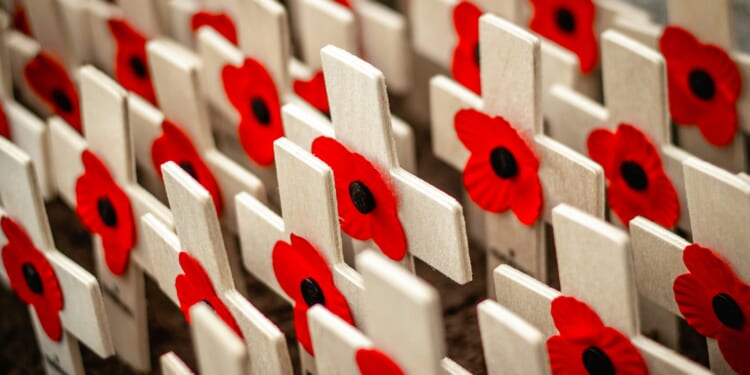
![Scott Bessent Explains The Big Picture Everyone is Missing During the Shutdown [WATCH]](https://www.right2024.com/wp-content/uploads/2025/11/Scott-Bessent-Explains-The-Big-Picture-Everyone-is-Missing-During-350x250.jpg)


